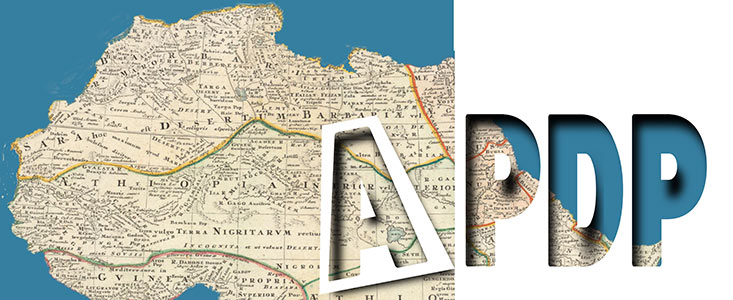A Survey of African Poetry in the London Times, Sunday Times, Financial Times, the Times Literary Supplement 1865-1985
Commentary on Jeremy Brooks’ Review of “Survive the Peace” by Cyprian Ekwensi and M.M. Carlin’s Review of “Understanding African Poetry” by Ken Goodwin, Referencing Christopher Okigbo
In a 1976 review for The Sunday Times of the novel Survive the Peace by the Nigerian writer Cyprian Ekwensi, Jeremy Brooks begins by briefly referencing Nigerian poet Christopher Okigbo in order to enter a conversation about the state of African literature. Brooks immediately positions Okigbo, who he names as "one of Nigeria's most distinguished poets," in opposition to "his friend and fellow Ibo" Chinua Achebe, quoting Okigbo as saying "There is no African literature. There is good writing and bad writing—that is all." Achebe, Brooks claims, "leaned perhaps too far the other way," quoting Achebe as saying that "an African creative writer who tries to avoid the big social and political issues of contemporary Africa will end up being completely irrelevant." Brooks, it should be noted, was not primarily a scholar of African writing; a British novelist, playwright, and poet, Brooks was most famous for his 1960 novel Jampot Smith. This positioning of his is perhaps a half-formed and certainly a reductive one, and places both Okigbo's and Achebe's words without context or nuance, instead implying a binary in ideologies which ignores the larger complexities of the authors' positionalities. Although Brooks' review ultimately focuses on Ekwensi's novel, his mention of Okigbo—and the fact that he positions him ideologically against such a well-known novelist—is telling of both the gap in attention to African poetry at the time in this and other similar publications, as well as the collapsing of poetry as a genre into a larger umbrella of African literature. It's also illuminating in the way Brooks discusses that large category of African literature in relation to English writers.
After quoting Okigbo and Achebe and framing their viewpoints in opposition to one another, Brooks is insistent on positioning the work of African writers in relation to British writers, stating that post-colonial African writing "has a driving urgency, a new minted freshness of expression which a British writer could no more ape than he can experience for himself the sense of direction and position that gives such authority to nineteenth century English fiction." Brooks also claims that African literature "is not to be defined by degrees of involvement in specifically African issues," suggesting that he's posing a middle ground between Okigbo and Achebe's stances, and yet his previous statement seems to contradict that claim. In describing African writing as something that no British writer could mimic, Brooks suggests that there is an innate quality to writing coming out of Africa—and belonging to all African writing, regardless of region, a claim that is problematic at best. His attempt to "define" African literature might stem from his attempts to understand or equate African writing in ways similar to how he understands British writing—which, considering the immense differences in scale of both place, people, and culture, is not a productive assessment.
This framing of African writing in relation to English writing is not singular to Brooks, by far. In another article published in 1976 in The Times Literary Supplement, M.M. Carlin reviews Ken Goodwin's Understanding African Poetry: A Study of Ten Poets. Carlin, who was a British teacher of English literature in Africa, worked primarily (in the articles available online) in critiquing articles by English men who were writing about Africa, mostly in the 1960's. In his review, Carlin points to Goodwin's way of placing the ten poets he discusses (including Okigbo) "in the order of their Africanness, their independence of European models," which Carlin says "forms a socio-cultural description of African poetry." According to Carlin, Goodwin's distinction seems to favor the group of poets who he categorizes as writing most "African" (Gabriel Okara, Okot p'Bitek, and Mazisi Kunene). He writes that, in contrast, Dennis Brutus, Christopher Okigbo, Lenrie Peters, and John Pepper Clark all "remained largely captive to the European, and particularly the British, tradition of poetry." There seems to be an impulse here, on both Goodwin and Carlin's part, to separate English traditions—even the English language—from African writing, suggesting that the essence of African poetry is incompatible with English traditions and language, or that, at the very least, it's weakened by the attempt to harness forms such as the sonnet in finding their poetic voice. What this reading doesn't acknowledge or allow for, however, is the fact that writers like Okigbo, who have been trained in the British literary tradition, are also complicating that tradition and putting pressure on it. This also speaks especially to discussions in and around Wole Soyinka's Myth Literature and the African World (Cambridge, 1976), and especially Ngugi wa Thiong'o's Decolonizing the Mind (Heinemann, 1986), which speaks to complicated questions of language—and a writer's choice of language—in nations in which indigenous and colonial languages are used.
Jessica Poli is a poet, creative nonfiction writer, and editor. She received her MFA in Creative Writing from Syracuse University and is currently enrolled in the MA in Creative Writing at the University of Nebraska-Lincoln. March 21, 2020.


